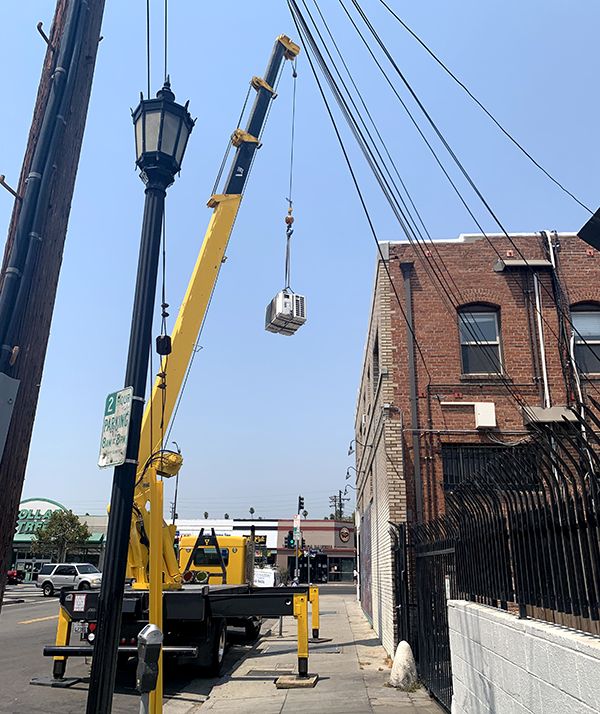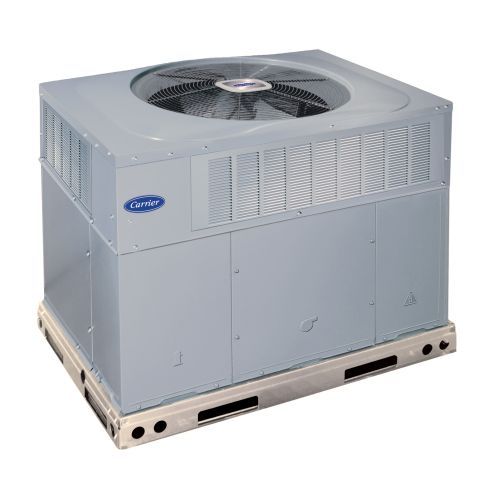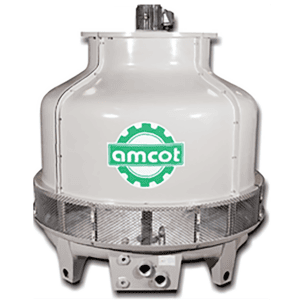





LA Heating & Air is a trusted Los Angeles HVAC specialist known for urgent emergency commercial HVAC services, honest upfront pricing, and fully code-compliant installations for light-commercial buildings.
Our replacements follow commercial installation standards used for offices, retail, restaurants, industrial spaces, and multi-tenant buildings.
Our commercial HVAC replacement process includes:


A commercial split HVAC system offers powerful, flexible heating and cooling for offices, retail stores, and multi-tenant buildings. At LA Construction Heating and Air, we provide expert installation and service for split systems across Los Angeles County, ensuring your business benefits from energy efficiency, reliable performance, and year-round comfort.
Designed for scalability and durability, our split systems are tailored to meet California’s efficiency standards while helping reduce operating costs and improve indoor air quality. We have installed split systems for all types of businesses including LA Family Housing.

For businesses that need dependable, all-in-one heating and cooling, a commercial package unit is a smart choice. At LA Construction Heating and Air, we specialize in installing and servicing package HVAC systems for offices, warehouses, and retail spaces across Los Angeles County. These rooftop or ground-mounted units combine efficiency, space savings, and reliable performance, making them ideal for large commercial properties.
Our experts design and install package units built for durability and compliance with California’s energy standards, helping your business maintain comfort and control operating costs. We have installed several package units for businesses from office spaces to resturants.

Boost efficiency and comfort in your business with a commercial heat pump system that delivers year-round heating and cooling. At LA Construction Heating and Air, we install and service heat pumps for offices, retail spaces, and commercial buildings across Los Angeles County.
Our systems are designed for energy savings, reliable performance, and compliance with California efficiency standards, helping you lower operating costs and keep your workplace comfortable.

Cooling towers play a critical role in commercial HVAC systems by removing excess heat from buildings and industrial processes. These systems work by using water and air to dissipate heat through evaporation, making them ideal for large facilities that require consistent temperature regulation, such as office buildings, hospitals, manufacturing plants, and data centers.
We install and service a wide range of cooling towers designed for light commercial use. Whether you're replacing an outdated unit or installing a new system, our team will recommend the right equipment based on your building size, usage requirements, and energy efficiency goals.

Keeping your server room at the right temperature is critical to protect sensitive IT equipment and prevent costly downtime. At LA Construction Heating and Air, we specialize in commercial mini-split AC installation for server rooms across Los Angeles County. Our ductless systems deliver precise, energy-efficient cooling with zone control that keeps your data centers, network closets, and IT rooms at optimal performance.
Unlike traditional systems, mini-splits run quietly, reduce operating costs, and provide reliable, around-the-clock temperature management. Whether you need a new installation or an upgrade to meet California’s efficiency standards, our team ensures your server room cooling system is designed for long-term reliability and compliance. Mini-split units work for all types of needs including commercial and residential hvac needs.
Our process for AC installation in Los Angeles starts with a free consultation. A certified technician will perform a detailed walkthrough and respond to all of your specific needs. Once we provide a custom quote and you approve it, we handle everything from permits to the final setup, ensuring a hassle-free AC replacement.
For a standard AC replacement, the job typically takes 1-3 full days. The timeline can be longer if new ductwork is required or for a complex installation. We will provide a precise timeline in your quote so you know exactly what to expect on AC installation day.
Please clear a path for our technicians from the street to your existing outdoor unit and to the indoor installation area. We also ask that you secure any pets and move any valuables away from the work zone. Our team will use drop cloths to protect your flooring throughout the entire AC installation service.
We install all types of high-efficiency systems perfect for the Los Angeles climate, including but not limited to: heat pumps, split systems, package units, and mini-splits. Our estimator will help you choose the best brand and SEER2 rating to meet your budget and energy-saving goals. A correctly sized and efficient system is key to long-term comfort and savings.
Yes, new AC units are significantly more energy-efficient than older models. By upgrading, you can see a noticeable reduction in your electricity bills, especially during the hot Los Angeles summers.
Yes, our service includes the complete removal and proper disposal of your old AC unit. We safely reclaim and recycle all old refrigerants in accordance with EPA regulations. This ensures an environmentally friendly and seamless AC replacement process for you.
It is important to always hire a licensed professional to complete your commercial HVAC installation. By taking any short cuts and possibly hiring an unlicensed person to save money you are potentially putting your commercial HVAC system at risk for inefficient running costs and costly breakdowns. How to find a professional, licensed HVAC contractor.
Building permits enforce following building codes. Building codes are in place to ensure properties meet safety and structural standard and that the equipment is functioning properly and efficiently. When completing commercial HVAC installation be sure to hire a licensed contractor who will pull the permit from the local building and safety department. California's most important permit requirements.
If your current system has been suffering from current breakdowns or costly repairs, you have high utility bills and your system is older than 15 years it may mean it is time to consider installation rather than continue paying for repairs. What season is best to replace your HVAC unit.

Is your LA business struggling with an outdated AC? Discover the long-term value of professional commercial AC installation. Contact us to get a free quote for your commercial AC replacement.

From optimizing system performance and ensuring energy efficiency to preventing costly breakdowns and maintaining indoor air quality, routine HVAC inspections for commercial HVAC play a strategic role in creating a comfortable, productive, and compliant working environment.

Discover the telltale signs indicating it's time to for commercial HVAC replacement. From increased energy bills and frequent repairs to uneven heating, this article guides you through the key indicators, helping you make informed decisions for a more efficient and comfortable commercial space.

Commercial swamp coolers maintenance helps keep vital components clean, in good condition, ensures the system runs correctly at max efficiency and maintains warranty. Routine HVAC maintenance can reduce the risk of malfunction by catching potential problems early helping prevent costly damage.

There are several great ways to cut back on your expenditure for your HVAC system. In this article we discuss three ways on how to operate your commercial HVAC system on a budget.

It is important to know how your HVAC warranty works and that it is working for you. In this article we discuss commonly asked questions and concerns regarding HVAC warranty some feedback to those questions.













